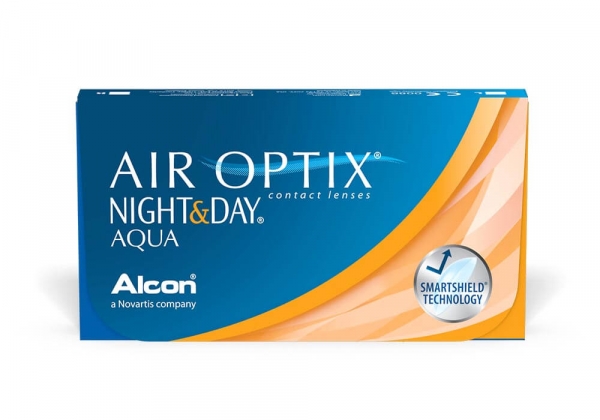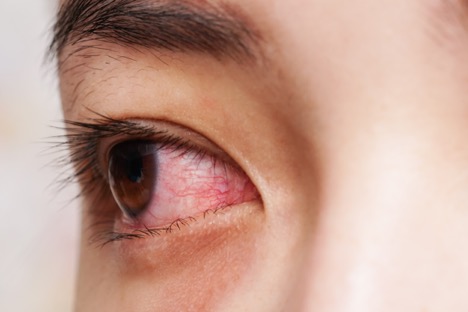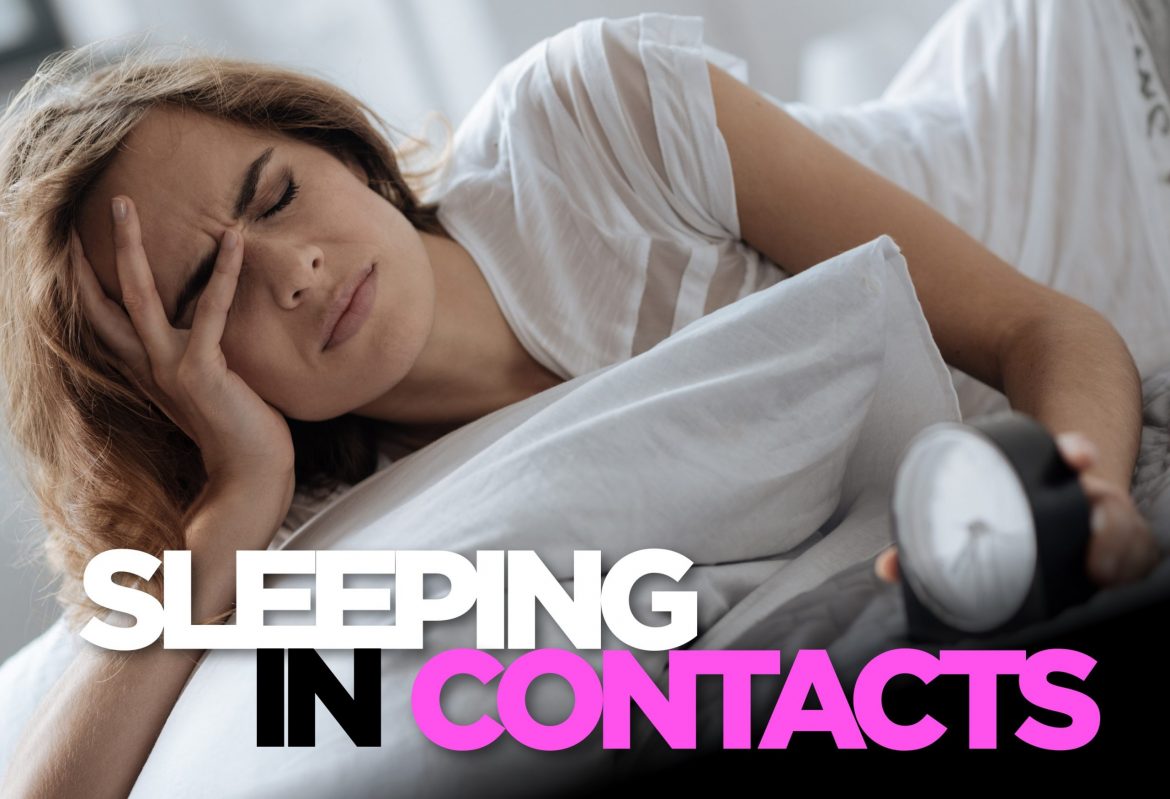
Half of all contact lens wearers in the U.S. have reported sleeping with their contacts in. (Source)
That’s a bad idea, in most cases.
New innovations in contact lens materials and the growing popularity of daily and two week disposable lenses have reduced the amount of lens-related infections. However, unlike prescription glasses, contact lenses require you to adhere to specific care instructions to avoid harming your eyes.
There are many contact lenses designed for extended wear (continual wear for up to 7 days) but considering only 5% of all contact lens wearers in the U.S. are prescribed extended wear lenses, it can be assumed that most people are risking their eye health by sleeping with their contacts.
The reason few people are prescribed extended wear lenses is because eye doctors are aware of the higher risk of infections and corneal injury. Wearing daily disposable soft contacts, where a fresh lens is used each day, virtually eliminates the chances of protein build-up and the reuse of non-sterile saline solution.
The vast majority of contact lens related complications are self-inflicted, brought on by overwearing. If you consistently sleep in your contacts, and they aren’t intended for that use, consider the following:
Low oxygen, high risk
Soft contact lenses have many measurable parameters, for example, water content and thickness, but oxygen transmissibility is especially important to understand when considering it in the context of sleeping in contacts.
All contact lenses limit the amount of oxygen reaching the eye, but lenses that are not designed for extended wear, especially older materials called hydrogel, have extremely low oxygen transmissibility (Dk/t value). Wearing these lenses while you sleep puts you at high risk for corneal hypoxia, which means your eye is not getting sufficient oxygen.

Consider the Air Optix Night & Day Aqua lenses. They’re made out of a modern silicone hydrogel with a Dk/t value of 140. They are FDA-approved for daily wear and up to 30 nights of continuous wear. However, Alcon’s site offers a warning: Not everyone can sleep in lenses or wear lenses for a full 30 nights. Ask your eye care professional for complete wear, care, and safety information.
Compare the contacts to the Proclear 1-day, which uses a traditional hydrogel material and has a Dk/t of 36. This doesn’t mean that Proclear lenses are harmful, so long as they are not being worn as extended wear (while you sleep).
Infections
Having extended wear contacts alone will not remove all risks. Soft contact lenses absorb moisture and particles. If the lens absorbs chemicals like chlorine from pool water, bacteria from open water or simply an element in the air that you may be allergic to, sleeping in those lenses without cleaning them first may lead to infection.
Even if you have extended wear contacts, take precautionary steps by removing your lenses, cleaning them using fresh saline solution and letting your eyes breath for as much time as possible before reinserting them.
Rest and recover

Overwearing or sleeping in contacts can lead to a few other less severe side effects:
- Dry eyes
- Redness
- Itchiness
- Irritation
- Difficulty focusing
These symptoms may or may not be the byproduct of sleeping in your contacts, but when this happens you should remove the contacts right away. If you have concerns about the seriousness of the symptoms, call your local eye doctor.
In most cases, showing your eyes a little TLC can provide relief. Leaving the contacts out for a couple days, placing a warm compress over your closed eyes and possibly some artificial tears can restore your eyes back to a healthy condition. Foods rich in Omega-3 fatty acids such as fish and flaxseed have been shown to prevent or reduce dry eyes by lowering the evaporation rate of the moisture on the eye.
The right lens is out there
If you regularly find yourself sleeping with contacts in, talk to your eye doctor about switching to an extended wear version. There are many options available, such as:
- Monthly Disposable
- Astigmatism (Toric)
- Multi-focal
The most important thing is to do what’s best for your eyes, and for most contact lens wearers this means taking the lenses out before you go to sleep. Talk to your eye doctor to find the right soft contact lens for your eyes. EZContacts carries modern daily disposable contacts, extended wear and everything in between.
Learn more about wearing contact lenses: Read our Contact Lenses FAQ here.

